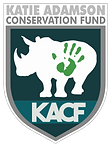
Research Center Development Team
Dave Johnson
Bees & Elephants Research Center
Kitenden Wildlife Corridor Tinga Tinga, Tanzania
Our goal is to create a research center, initially for study of bees and elephants but eventually for all wildlife that live in the east African savanna, that welcomes international scientists, citizen scientists, and eco-tourists to gather data, experience and appreciate wildlife, and learn to protect, conserve, and study all species sustainably.
Research projects would include tracking elephant migration routes using GPS collars to detect areas of human-elephant conflict and poaching, elephant behavior/physiology, use of bees as a livestock management tool, and establishment of pollination corridors to feed/support/protect wildlife species.
Dr. Jody Johnson on Bees & Elephants Research Center Project
Location
Kitenden Wildlife Corridor Tinga Tinga, Tanzania
The Kitenden Wildlife Corridor is a critical wildlife corridor in Tanzania that connects Amboseli National Park in Kenya to the Maasai Mara National Reserve and other protected areas in Tanzania. It is a vital migratory route for elephants, giraffes, zebras, and other wildlife species, and it plays an important role in maintaining the ecological balance of the region.
The Kitenden Wildlife Corridor is located at the base of Mount Kilimanjaro, and it is a beautiful and diverse landscape that includes grasslands, woodlands, and wetlands. It is also home to a variety of wildlife species, including elephants, giraffes, zebras, lions, leopards, cheetahs, hyenas, and wildebeest.
The Kitenden Wildlife Corridor is facing a number of threats, including habitat loss, fragmentation, and poaching. However, there are a number of conservation organizations working to protect the corridor, including the International Fund for Animal Welfare (IFAW) and the Maasai Mara Wildlife Conservancies Association (MMWCA).
The IFAW has secured 26,000 acres of land in the Kitenden Wildlife Corridor, and it is working with the local Maasai community to protect the corridor. The MMWCA is also working to protect the corridor by supporting community-based conservation initiatives.
The Kitenden Wildlife Corridor is an important part of Tanzania's natural heritage, and it is essential to the conservation of wildlife in the region. By protecting the corridor, we can help to ensure that future generations will be able to enjoy this amazing place.
Project Disposition
Key Traits of the Research Center
50 acres of land has been donated by the Maasai tribe who live in Tinga Tinga.
This project will be a separate supporting organization to KACF.
Kitenden Wildlife Corridor is a key migration route of interest to the International Fund for Animal Welfare, which takes care to preserve wildlife corridors internationally in the east Africa region.
The center is designed (plans available) to be completely sustainable using an extensive water capture and purification system from wet season rainfall, a solar panel field protected by solar powered electric fence which will energize all equipment and computers, a satellite link to the internet, compostable toilets, brick buildings made from local fired brick, and canvas tent residence structures.
The center targets international and local scientists of all ages, citizen scientists who wish to study and record data on their favorite animals, wildlife managers who seek to learn either human-managed methods of animal care or methods of study of truly wild animals or both, entomologists who study any insect family or are engaged in pollination science, and ecotourists.
Estimated Costs
Kitenden Wildlife Corridor Bees & Elephants Research Center
Year 1: Base camp is designed to be a temporary site to determine the final best location in the corridor = $0.5 million to begin.
Year 2-3: Final site construction will cost $5million. Base camp resources are reusable at the final site.
Years 3-5: $9.5million to sustain salaries and costs for scientific equipment, building maintenance, and hospitality services. Income from visiting scientists and ecotourists are expected to enhance portfolio income.
Total Cost Estimate: $15million to build and keep the facility financially stable until the site generates sustainable income.
Meet The Team
Principal Players in Project Development
Dave Johnson
Contact us
8156 South Wadsworth Blvd, Suite E174
Littleton, Colorado, USA 80128
.png)



.jpg)



.jpg)



